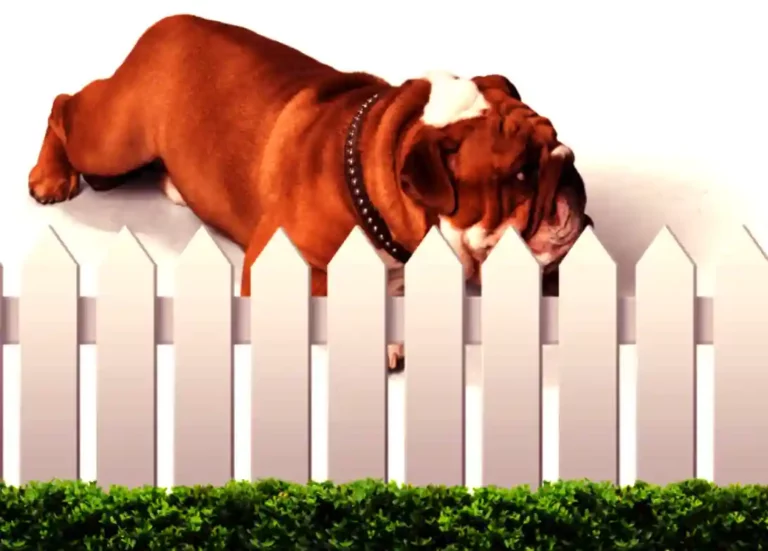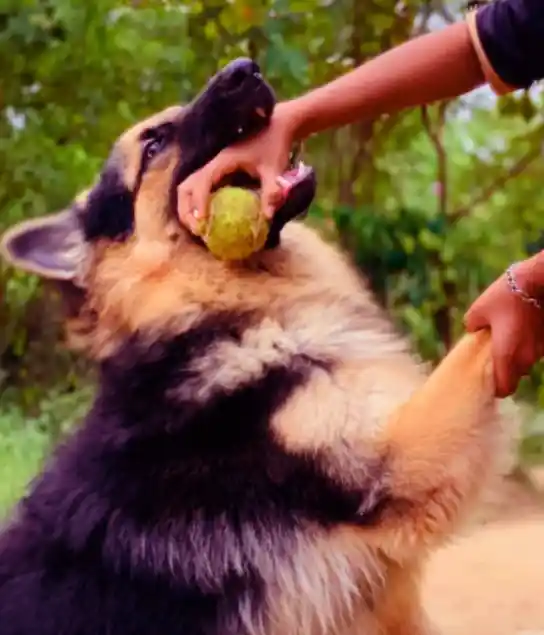How Can You Tell If A Dog Is Mentally Challenged? [3 Signs that you need know]
Some dogs are not able to communicate their needs or desires verbally. If you think this might be the case for your dog, try to observe them in different situations and see any patterns in their behavior.
How Can You Tell If A Dog Is Mentally Challenged? Dogs have many signs and behavioral changes, like excessive licking, jumping, barking, not understanding your orders, etc. You can look for these and other signs that tell you if your dog suffers from a mental disorder.
![How Can You Tell If A Dog Is Mentally Challenged? [3 Signs that you need know] 1 How Can You Tell If A Dog Is Mentally Challenged](https://www.puppiesdiary.com/wp-content/uploads/2023/03/How-Can-You-Tell-If-A-Dog-Is-Mentally-Challenged-1024x601.webp)
No, that could be a sign of mental disability. For example, if they constantly jump on you and won’t stop no matter how much you tell them. If the dog always seems scared when visitors come over, that could indicate various sensory processing challenges.
If you notice these types of behaviors, it’s best to contact your veterinarian so they can do an exam and determines what the best course of action is. If you have a dog as a pet, you must care for him and his health.
So do not waste any minute taking your dog for the checkup if you think he is showing the signs and symptoms of mental illness.
Table of Contents
- How Can You Tell If Your Dog Is Special Needs?
- Can Dogs Have Mental Disabilities?
- How Can You Tell If Your Dog Has Schizophrenia?
- Can A Dog Be Depressed?
How Can You Tell If Your Dog Is Special Needs?
Determining whether your dog is special needs can be difficult, especially if they are not impaired in any way that would make them stand out to an average person. However, there are many ways to tell your dog might need some extra care.
One of the best ways to determine whether or not your pup falls under the special needs category is their breed or size.
A smaller frame can mean orthopedic problems with joints, and heavy breeds may have health issues with weight management and breathing problems due to their size, causing them more stress on their heart than a smaller-framed pet would encounter.
Young pups are more likely to develop behavior and health problems than older pets. Does your pet take medicines regularly? This can affect how they behave, their energy level due to side effects, etc.
Has your dog ever been in a traumatic event, such as being struck by a car or attacked by another animal? This can indeed affect their health and well-being well into their adult years.
How much time does your pet spend daily on a leash, in a crate, in the house alone, or out and about? These are all ways to consider how much they are getting into the world.
This can help you predict whether your pup needs extra attention and love.
Can Dogs Have Mental Disabilities?
The answer is that yes, dogs can have mental disabilities. Like humans and other animals, dogs react abnormally according to their environment and physical state.
![How Can You Tell If A Dog Is Mentally Challenged? [3 Signs that you need know] 2 Can Dogs Have Mental Disabilities](https://www.puppiesdiary.com/wp-content/uploads/2023/03/Can-Dogs-Have-Mental-Disabilities-1024x586.webp)
Some of the most surprising behaviors a dog with mental disabilities may exhibit include aggression toward other people or animals.
They also show problems with anxiety or depression, self-injury through repetitive head-banging, chewing on furniture, and failure to recognize familiar people or places.
Many of these behaviors may seem normal in the dog’s current environment and social context; however, they can lead to problems when the dog is placed in a new environment or meets new people or animals who do not recognize the behavior as usual.
In many cases, dogs with mental disabilities are misdiagnosed as suffering from psychiatric disorders, such as separation anxiety, behavioral aggression, and obsessive-compulsive disorder.
One of the many misconceptions about dogs and their mental capabilities is that they can’t have various mental conditions.
In recent years, many reports have suggested that some dogs exhibit signs such as nervousness, aggression, and depression.
Signs And Symptoms Of Mental Disabilities
Here are some of the most common signs your dog may have a mental disability:
- Excessive barking
Excessive barking for no reason at all, For example, maybe you already have dogs barking outside, and one of your inside dogs wants to join in.
This could signify a sensory disorder if they start yapping and won’t stop even when you tell them to be quiet.
- Dog Walking into walls
Walking into walls or other objects that they can see. You might be tempted to write this off as clumsiness, but it could mean visual processing issues.
This is especially true if the problem repeatedly happens no matter how often the dog has been corrected. Inability to walk in a straight line. You may have to help guide them or give them some space.
- Dog misunderstand their owner
Being startled easily or frightened of their surroundings. They misunderstand their owners’ spoken commands or body language. It’s not uncommon for dogs to be able to read your body language and pick up on your moods and emotions.
For example, if you’re annoyed with them but are trying very hard to hide your feelings, it could mean that they don’t understand what you’re saying. If this is the case, it’s best to speak more slowly and use softer tones so they can hear your voice better.
Dogs are supposed to be courageous and not afraid of everything. If your dog is constantly startled or terrified when you are not in the room, it could be a sign that they are having some other issues related to sensory overload.
puppiesdiary
If your dog exhibits any of these behaviors, it is best to get them checked out by a professional. The only thing that will make a difference is getting them checked out and receiving proper treatment.
You can also do things on your own to help make things a bit easier for your furry friend who seems to have problems with their mind.
How Can You Tell If Your Dog Has Schizophrenia?
If you’ve ever wondered whether or not your dog has schizophrenia, you have come to the right place. Schizophrenia is a cause of delusions and hallucinations and an affective disorder. Here you will get to know everything about it.
It’s also challenging to get an accurate diagnosis because there are different types of schizophrenia, each presenting with various symptoms. Most dogs diagnosed with schizophrenia are diagnosed later in life than humans.
Usually, the diagnosis occurs between 16 and 24, which shows how potent the condition can be for some dogs. Unfortunately, this is often when their cognitive abilities are at their peak.
Symptoms Of Schizophrenia
- Hallucinations and Delusions:
Some dogs will hear voices or see existing things. Others will have delusions that can be elaborate or feel someone is following them around the house at night. It’s similar to what humans experience as hallucinations, but it takes place outside the context of reality.
- Lack of Coherence:
Some dogs will feel that something is moving or moving them, but nothing is happening. Others won’t explain their problems clearly or even know what they’re talking about when they attempt to explain. In both cases, things the person describes might not exist at all.
- Negative Symptoms:
A negative symptom or an impairment can occur in dogs with schizophrenia. They may appear to be different characters than usual and behave very oddly. They might, for instance, adopt new practices in their life, such as sleeping during the day or eating strange diets.
Can A Dog Be Depressed?
Animal depression is a serious topic that many dog owners have never considered. It’s a myth that animals lack emotional intelligence; quite the opposite.
![How Can You Tell If A Dog Is Mentally Challenged? [3 Signs that you need know] 3 Can A Dog Be Depressed](https://www.puppiesdiary.com/wp-content/uploads/2023/03/Can-A-Dog-Be-Depressed-1024x651.webp)
Companion animals like dogs know when you are feeling low and can sense when something terrible has happened in your home. There are critical signals to watch for to know whether your dog is depressed.
You can look for signs such as changes in appetite, behavior, lethargy, loss of interest in tasks and activities, and changes in sleep patterns. But don’t worry, there are some tips on how to help make them feel better.
Animals can get depressed for all of the same reasons that people do. Elderly animals may be getting increasingly sick without proper treatment.
Dog owners who have just lost a beloved family member might be surprised to find their dog depressed over the loss, but they are grieving too.
Here are some tips to help you recognize if your pet is depressed.
- Pay attention to sleep patterns. If your dog is a normally active animal but suddenly starts sleeping all the time, this could indicate that something’s not right. It could be a symptom of depression.
- Pay attention to appetite. Does he eat less often than before? Look for changes in appetite throughout the day and during different times. These changes could be a sign of depression or serious health issues.
- Pets can become depressed when they spend time apart from their owner.
So if you find out that your dog is suffering from depression, take the help of a vet to make him feel better. Depression is curable; you only have to shower your love and affection on them and look for their health.






